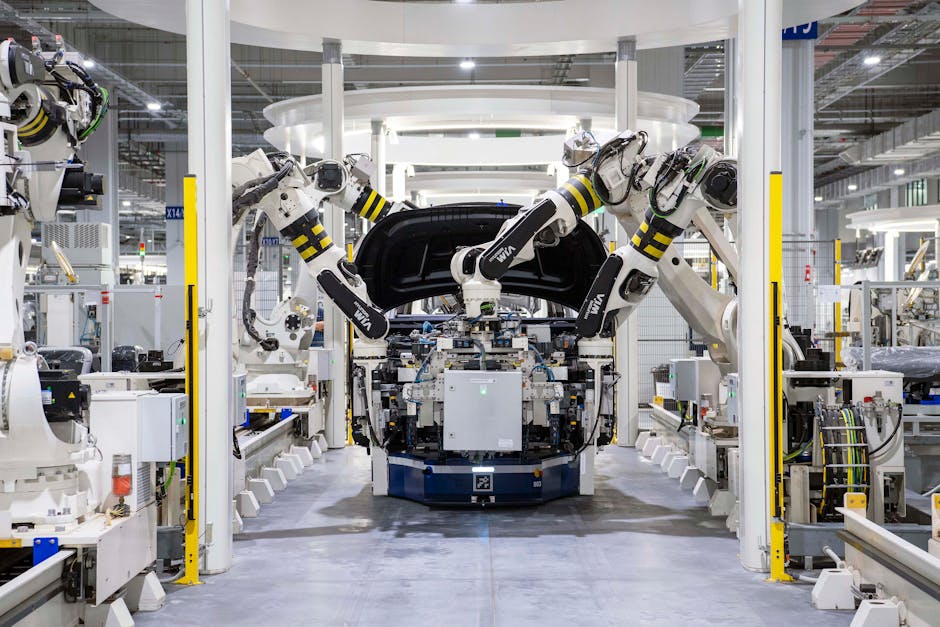In today’s fast-paced digital landscape, businesses are under constant pressure to innovate, reduce costs, and improve efficiency. Enter AI-powered automation—a game-changing technology that is revolutionizing how businesses operate. By harnessing the power of Artificial Intelligence (AI), companies can automate routine tasks, streamline processes, and make smarter, data-driven decisions. In this blog, we explore how AI-powered automation is transforming business operations and why it’s a critical tool for companies looking to stay competitive in an ever-evolving market.
What is AI-Powered Automation?
AI-powered automation refers to the use of Artificial Intelligence technologies—such as machine learning, natural language processing (NLP), and robotic process automation (RPA)—to perform tasks and processes traditionally carried out by humans. Unlike traditional automation, which follows pre-defined rules, AI-powered automation can learn from data, adapt to changes, and make decisions without human intervention.
Key Benefits of AI-Powered Automation
- Increased Efficiency and Productivity AI-powered automation eliminates manual, repetitive tasks that consume valuable time and resources. From data entry to customer service, AI can handle a wide range of tasks with precision and speed. This allows employees to focus on higher-value work, boosting overall productivity and efficiency.
- Cost Reduction Automating routine tasks with AI significantly reduces operational costs. Businesses can achieve more with fewer resources, eliminating the need for human intervention in repetitive processes. This reduction in labor costs, combined with the improved efficiency of AI, leads to significant savings.
- Improved Accuracy and Quality Human errors are inevitable, but AI systems are designed to work with high precision. By automating processes such as data processing, analysis, and customer service, businesses can reduce mistakes, ensure consistency, and maintain high-quality output, enhancing customer satisfaction.
- Enhanced Decision-Making AI-powered automation isn’t just about performing tasks—it’s also about gaining insights. AI systems can analyze large volumes of data in real time, identifying patterns and trends that would be difficult for humans to spot. With AI handling data analysis, businesses can make more informed, data-driven decisions, leading to better outcomes and strategic direction.
- Scalability As businesses grow, so do their operational demands. AI-powered automation makes scaling processes easier and more efficient. Whether it’s managing an increasing volume of transactions, customer inquiries, or data analysis, AI systems can be scaled up quickly without a significant increase in resources or costs.
Applications of AI-Powered Automation in Business Operations
- Customer Service and Support One of the most common applications of AI automation is in customer service. Chatbots and virtual assistants, powered by natural language processing (NLP), can handle a wide range of customer queries 24/7, improving response times and enhancing customer satisfaction. AI can also assist in troubleshooting, providing personalized recommendations, and even handling complex support issues without human intervention.
- Marketing and Sales AI can automate many aspects of marketing and sales. For instance, AI algorithms can optimize ad targeting, segment customers, and personalize content recommendations. Sales teams can leverage AI-driven insights to predict customer behavior, automate lead scoring, and streamline the sales process, making it more effective and data-driven.
- Data Entry and Processing Repetitive data entry tasks can be time-consuming and error-prone. AI-driven automation tools, such as robotic process automation (RPA), can handle tasks like data extraction, form filling, and document processing. This automation ensures that data is processed accurately and quickly, allowing businesses to focus on more strategic activities.
- Supply Chain and Inventory Management AI can transform supply chain and inventory management by automating tasks such as stock tracking, order fulfillment, and demand forecasting. AI algorithms can predict supply chain disruptions, optimize routes, and ensure that inventory levels are maintained, reducing costs and improving delivery efficiency.
- Human Resources AI automation in HR streamlines the recruitment process by automating candidate screening, interview scheduling, and employee onboarding. AI-driven tools can also help monitor employee performance, manage payroll, and predict future workforce needs, allowing HR teams to focus on strategic talent management.
Challenges of Implementing AI-Powered Automation
While AI-powered automation offers immense benefits, its implementation comes with challenges:
- Initial Investment and Integration The upfront investment in AI technology can be substantial, especially for small to medium-sized businesses. Additionally, integrating AI-powered automation into existing systems can be complex and time-consuming.
- Data Privacy and Security As AI systems handle vast amounts of sensitive data, ensuring data privacy and security is critical. Businesses must adopt robust security protocols and comply with data protection regulations to avoid security breaches and protect customer trust.
- Change Management Introducing AI-powered automation may face resistance from employees who fear job displacement. It’s essential for businesses to manage this transition carefully, providing training and support to upskill employees and ensure a smooth integration of AI systems.
The Future of AI-Powered Automation
As AI technology continues to evolve, the possibilities for automation in business operations will only expand. The integration of AI and machine learning into more processes will drive innovation and efficiency, enabling businesses to operate smarter, faster, and more cost-effectively.
Businesses that embrace AI-powered automation today will be better positioned to adapt to future challenges and opportunities. By continuously improving processes, enhancing customer experiences, and making data-driven decisions, AI-powered automation will play a pivotal role in shaping the future of business.
Conclusion
AI-powered automation is not just a trend—it’s a fundamental shift in how businesses operate. From improving efficiency and accuracy to enabling smarter decision-making and scalability, the benefits are clear. Businesses that leverage AI to automate key processes will be better positioned to thrive in an increasingly competitive digital landscape. Whether you’re looking to automate customer service, marketing, or back-office operations, AI-powered automation offers endless opportunities to streamline and enhance your business operations.



